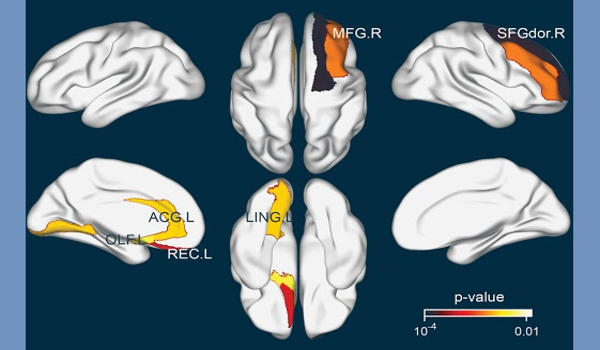Tea drinkers may reap benefits other than caffeine boosts and relaxation, as researchers believe tea may be beneficial to the brain. A recent study led by researchers from the National University of Singapore (NUS) discovered that regular tea drinkers have better-organized brain regions compared to non-tea drinkers, which is associated with healthy cognitive function. This discovery was made by the research team after analyzing neuroimaging data from 36 older adults.
“Our findings provide the first evidence of a positive contribution of tea drinking to brain structure and suggest that drinking tea regularly has a protective effect against age-related decline in brain organization,” said team leader Assistant Professor Feng Lei of the NUS Yong Loo Lin School of Medicine.
A recent study revealed that regular tea drinkers have better organized brain regions compared to non-tea drinkers.
The study was conducted in collaboration with collaborators from the Universities of Essex and Cambridge, and the results were published in the scientific journal Aging on June 14, 2019.
According to a new neuroimaging study, older people who drink tea at least four times per week have better brain efficiency than those who do not. Tea consumption has been linked to improved cognitive function in the elderly. According to the researchers, the study provides evidence that tea consumption protects against age-related declines in brain organization.
The study included 36 people over the age of 60 who were asked about their health, lifestyle, and diet, as well as their mental well-being. They were then tested for nervous and psychological function, as well as having brain MRI scans. The study discovered that drinking green, oolong, and black tea four times a week or more for 25 years had a positive effect on the organization of brain circuits, resulting in efficient data processing or better cognitive functioning.

Benefits of regular intake of tea
Tea consumption has been shown in previous studies to be beneficial to human health, with benefits including mood improvement and cardiovascular disease prevention. In fact, according to the findings of a longitudinal study led by Asst Prof Feng and published in 2017, daily tea consumption can reduce the risk of cognitive decline in older people by 50%.
Following this discovery, Asst Prof Feng and his colleagues investigated the direct effect of tea on brain networks further. The study’s team recruited 36 adults aged 60 and up and collected information on their health, lifestyle, and psychological well-being. The elderly participants were also subjected to neuropsychological evaluations and magnetic resonance imaging (MRI). The research was carried out between 2015 and 2018.
After analyzing the participants’ cognitive performance and imaging results, the research team discovered that people who drank green tea, oolong tea, or black tea at least four times a week for about 25 years had brain regions that were more efficiently interconnected.
“Consider the analogy of road traffic: consider brain regions to be destinations, and the connections between brain regions to be roads. When a road system is better organized, vehicle and passenger movement is more efficient and uses fewer resources. Similarly, more structured connections between brain regions allow for more efficient information processing “Asst Prof Feng elaborated.
He continued, “In previous studies, we found that tea drinkers had better cognitive function than non-tea drinkers. Our current brain network findings indirectly support our previous findings by demonstrating that the positive effects of regular tea drinking are the result of improved brain organization caused by preventing disruption to interregional connections.”
Next step in research
Because cognitive performance and brain organization are inextricably linked, more research is required to better understand how functions like memory emerge from brain circuits, as well as potential interventions to better preserve cognition during the aging process. Assoc Prof Feng and his colleagues intend to investigate the effects of tea, as well as the bioactive compounds found in tea, on cognitive decline.
The current study’s findings not only confirmed previous research, but also demonstrated one possible explanation. Tea consumption appears to aid in the preservation of intact neural connections between related brain regions, making the aging brain more organized.
According to researcher Lei Feng, “when a road system is better organized, vehicle and passenger movement is more efficient and uses fewer resources.” Similarly, more structured connections between brain regions allow for more efficient information processing.”
















